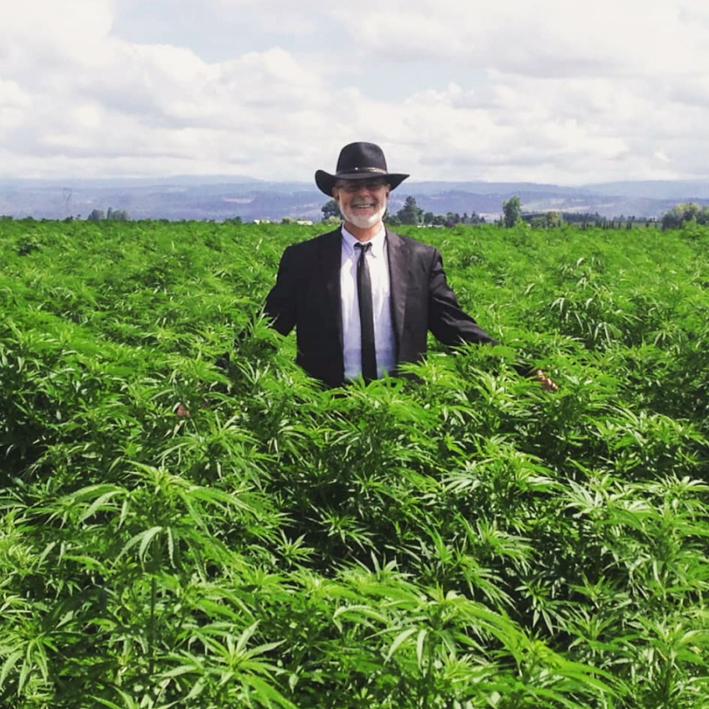What do kosher potheads, a Los Angeles weed entrepreneur, and a somewhat unorthodox Texas rabbi have in common? It’s not a setup for a joke but a Talmud-level riddle Roxanne Dennant had to solve.
Dennant makes Fruit Slabs: all-natural squares of mango, strawberry, and such that are, like seemingly everything else these days, weed-infused and touted as “healthy” edibles. But she had a problem. “Some Jews keep Shabbat to the degree that they will not light a lighter,” Dennant, who is Jewish, says. “They rely on edibles if they want to [indulge] during the Sabbath.” And therein resided her problem: she needed to get a rabbi to certify her product as kosher.
She figured that since her vegan option is already essentially kosher—unlike standard gelatin products, Slabs don’t contain animal bone or skin—certification would be a cinch. It wasn’t. According to Dennant, local rabbis were “too scared to get into” the weed market. Then she met Yaakov Cohen, a Houston rabbi. Cohen, the owner of Whole Kosher Services, recognizes the controversy that surrounds declaring recreational edibles to be kosher. “It is a sticky topic,” he admits, possibly with the double entendre intended. “[Cannabis] has a stigma because it does destroy some people’s lives. But I look at [cannabis] as a medicine, and there should be kosher options.”

That said, the rabbi, who recently did an audit for a weed business called Dubbi Brothers, has good reason to go against the grain: his six-and-a-half-year-old son died from brain cancer. Cannabis was the only thing that provided relief from the side effects of chemotherapy. “Two lesbians from Mendocino County helped us by sending juices and oils,” says Cohen. “But their shipments got stopped at the post office. That created problems.”
These days, pushback on medical marijuana within the rabbinical community may be lessening. However, recreational use is still widely regarded as, at best, a gray area. “So, how do you define recreational?,” Cohen asks. “While you can look at it all as recreational, what about the person with migraines who only gets a good night’s sleep after eating a gummy? He should be able to get it in a kosher form.”
In establishing his position, Cohen consulted a higher source. He asked a leading rabbi if Jewish law permits it. The rabbi gave him an answer that was part philosophical, part Catskills stand-up: “He told me to find my answer in the fifth book of Jewish law.” (Attention, goyim: there is no fifth book.)
In addition to the spiritual, uh, lift that weed products get from a kosher seal, there might be a business one as well. While only 2 percent of America is Jewish, more than 40 percent of packaged goods sold in the country are kosher.
So, did the rabbi … partake?
“That is an emphatic no,” he says without hesitation.
Dennant adds, “We have versions with and without THC.”
Michael Kaplan is a writer with the New York Post


